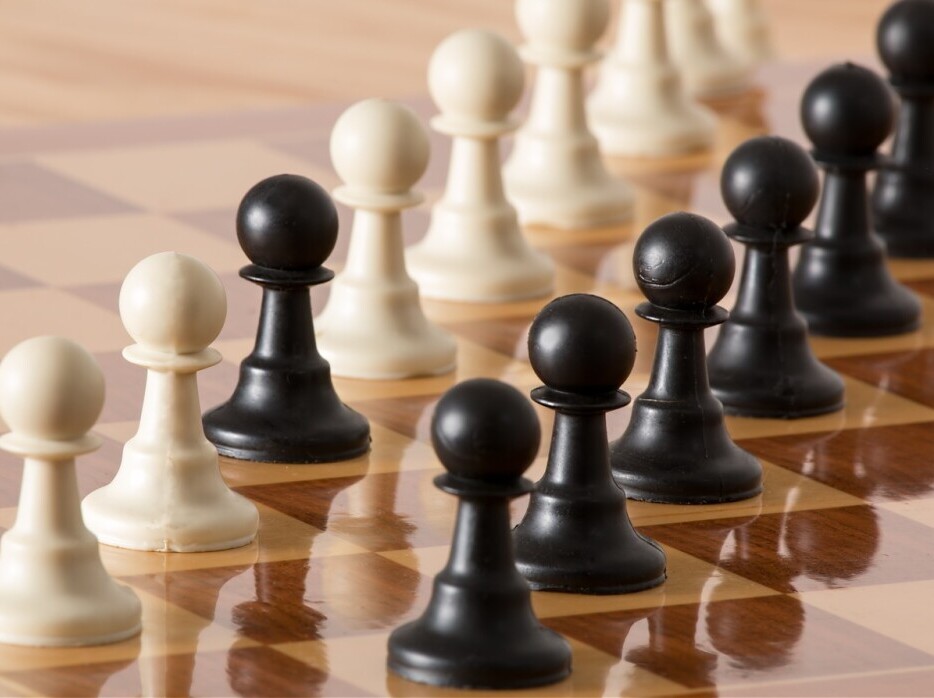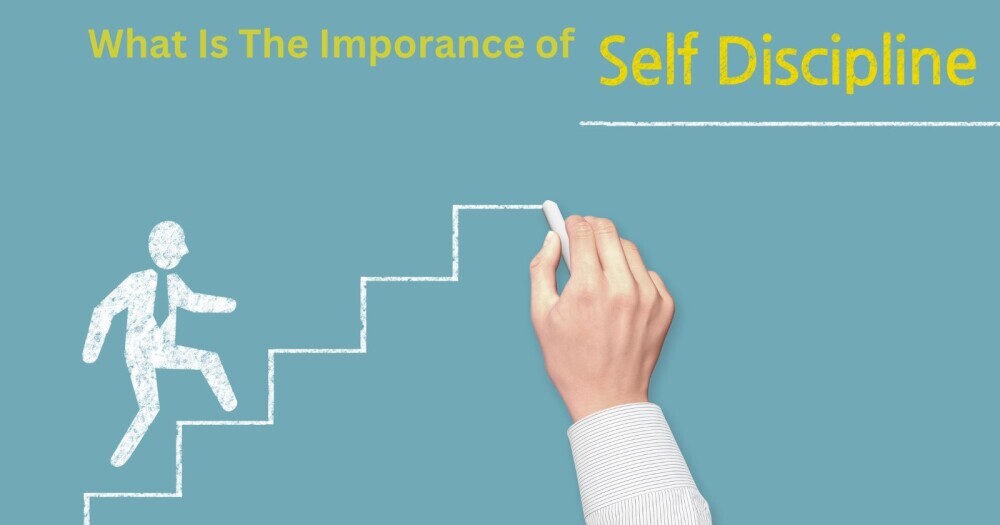Self-discipline is something we all need to work on, so in this article, I am going to look at what is the importance of self discipline.
“The most important success principle of all was stated by Elbert Hubbard, one of the most prolific writers in American history, at the beginning of the twentieth century.
He said, ‘Self-discipline is the ability to do what you should do, when you should do it, whether you feel like it or not.’”
He went on to say, “There are 999 other success principles that I have found in my reading and experience, but without self-discipline, none of them work. With self-discipline, they all work.”
Thus, self-discipline is the key to personal greatness.
What Is The Importance Of Self Discipline?
Self-discipline is the magic quality that opens all doors for you and makes everything else possible. With self-discipline, the average person can rise as far and as fast as his talents and intelligence can take him. But without self-discipline, a person with every blessing of background, education, and opportunity will seldom rise above mediocrity.
Just as self-discipline is the key to success, the lack of self-discipline is the major cause of failure, frustration, underachievement, and unhappiness in life. It causes us to make excuses and sell ourselves short.
Perhaps the two biggest enemies of success, happiness, and personal fulfillment are first, the Path of Least Resistance and, second, the Expediency Factor.
The Path of Least Resistance is what causes people to take the easy way in almost every situation. They seek shortcuts to everything. They arrive at work at the last minute and leave at the first opportunity. They look for get-rich-quick schemes and easy money.
Over time, they develop the habit of always seeking an easier, faster way to get the things they want rather than doing what is hard but necessary to achieve real success.
The Expediency Factor, which is an extension of the law of least resistance, is even worse when leading people to failure and underachievement. This principle says, “People invariably seek the fastest and easiest way to get the things they want, right now, with little or no concern for the long-term consequences of their behaviors.” In other words, most people do what is expedient, what is fun and easy rather than what is necessary for success.
Every day, and every minute of every day, there is a battle going on inside of you between doing what is right, hard, and necessary (like the angel on one shoulder) or doing what is fun, easy, and of little or no value (like the devil on your other shoulder). Every minute of every day, you must fight and win this battle with the Expediency Factor and resist the pull of the Path of Least Resistance if you truly desire to become everything you are capable of becoming.

Another definition of self-discipline is self-mastery. Success is possible only when you can master your own emotions, appetites, and inclinations. People who lack the ability to master their appetites become weak and dissolute, as well as unreliable in other things as well.
Self-discipline can also be defined as self-control. Your ability to control yourself and your actions, control what you say and do, and ensure that your behaviors are consistent with your long-term goals and objectives is the mark of a superior person.
Discipline has been defined as self-denial. This requires that you deny yourself the easy pleasures, the temptations that lead so many people astray, and instead discipline yourself to do only those things that you know are right for the long term and appropriate for the moment.
Sociologist Dr. Edward Banfield of Harvard university conducted a fifty-year study into the reasons for upward socioeconomic mobility in America. He concluded that the most important single attribute of people who achieved great success in life was “long time perspective.” Banfield defined “time perspective” as “the amount of time an individual takes into consideration when determining his present actions.”
In other words, the most successful people are long-term thinkers. They look into the future as far as they can to determine the kind of people they want to become and the goals they want to achieve.
They then come back to the present and determine the things that they will have to do or not do to achieve their desired futures.
This practice of long-term thinking applies to work, career, marriage, relationships, money, and personal
Self-discipline requires delayed gratification, the ability to put off satisfaction in the short term in order to enjoy greater rewards in the long term.
Successful people make sure that everything they do in the short term is consistent with where they want to end up in the long term. They practice self-discipline at all times.
Perhaps the most important word in long-term thinking is sacrifice. Superior people have the ability to throughout their lives make sacrifices in the short term, both large and small, so as to assure greater results and rewards in the long term.

You see this willingness to sacrifice in people who spend many hours and even years preparing, studying, and upgrading their skills to make themselves more valuable so that they can have a better life in the future, rather than spending most of their time socializing and having fun in the present.
Your ability to think, plan, and work hard in the short term and to discipline yourself to do what is right and necessary before you do what is fun and easy is the key to creating a wonderful future for yourself.
Your ability to think long-term is a developed skill. As you get better at it, you become more able to predict with
increasing accuracy what is likely to happen to you in the future as the result of your actions in the present. This is a quality of the superior thinker.
“Successful people make a habit of doing the things that unsuccessful people don’t like to do.”
And what were these things? It turned out that the things that successful people don’t like to do are the same things that failures don’t like to do either. But successful people do them anyway because they know that this is the price they have to pay if they want to enjoy greater success and rewards in the future.
What Grey found was that successful people are more concerned with “pleasing results,” whereas failures were more concerned about “pleasing methods.” Successful, happy people were more concerned with the positive, long-term consequences of their behaviors, whereas unsuccessful people were more concerned with personal enjoyment and immediate gratification.
The simplest rule in the practice of self-discipline is to eat “dinner before dessert.” In a meal, there is a logical order of dishes, and dessert comes last. First, you eat the main course and clean your plate; only then do you have dessert.
There is a cute but misleading bumper sticker that says, “Life is short; eat dessert first.”
Just think what would happen if you came home after work and, instead of eating a healthy dinner, you ate a large piece of apple pie with ice cream. What kind of appetite for healthy, nutritious food would you have afterward? With all that sugar in your stomach, how would you feel? Would you feel re-energized and eager to do something productive? Or would you feel tired and sluggish and ready to write off the day as largely finished?
You get the same result when you go for a drink or two after work and then come home and turn on the television. These are simply different forms of “dessert” that largely eliminate your ability to do anything useful for the rest of the evening.
Perhaps the worst part of all is that, whatever you do repeatedly soon becomes a habit. And a habit, once formed, is hard to break. The habit of taking the easy way, doing what is fun and enjoyable, or eating dessert before dinner becomes stronger and stronger, and it leads inevitably to personal weakness, underachievement, and failure.
Bad habits are easy to form but hard to live with. Good habits are hard to form but easy to live with. As Goethe said, “Everything is hard before it’s easy.”
It is hard to form the habits of self-discipline, self-mastery, and self-control, but once you have developed them, they become automatic and easy to practice. When the habits of self-discipline are firmly entrenched in your behavior, you start to feel uncomfortable when you are not behaving in a self-disciplined manner.
The best news is that all habits are learnable. You can learn any habit you need to learn in order to become the kind of person that you want to become. You can become an excellent person by practicing self-discipline whenever it is called for.
The payoff for developing high levels of self-discipline is extraordinary! There is a direct relationship between self-discipline and self-esteem:
The more you practice self-mastery and self-control, the more you like and value yourself;
The more you discipline yourself, the greater your sense of self-respect and personal pride;
The more you practice self-discipline, the better your self-image.
You see yourself and think about yourself more positively.
You feel happier and more powerful as a person.
The development and maintenance of the habit of self- discipline are a lifelong task, an ongoing battle. It never ends. The temptation to follow the path of least resistance and the expediency factor lurk continually in the back of your mind. They are always waiting for an opportunity to pounce, to lead you astray into doing what is fun, easy, and unimportant rather than what is hard, necessary, and life-enhancing.
Napoleon Hill concluded his bestselling book of the same name by saying that “Self-discipline is the master key to riches.” Self-discipline is the key to self-esteem, self-respect, and personal pride. The development of self-discipline is your guarantee that you will eventually overcome all your obstacles and create a wonderful life for yourself.
The ability to practice self-discipline is the real reason why some people are more successful and happy than others.
So hopefully, now you understand the importance of self-discipline and what is the importance of self discipline?
![]()


Self-discipline is often seen as a personal trait, but I wonder how much of it is shaped by our environment and daily habits. For example, can someone develop strong self-discipline simply by changing their surroundings, like working in a distraction-free space or adopting a strict routine? It would also be interesting to explore how self-discipline differs from motivation. Are the two interconnected, or can one exist without the other? I’d love to hear how you think external accountability plays into this, do people stay more disciplined when others are watching, or does true self-discipline have to come from within?
I definitely think that self-discipline and motivation are linked, as it is more difficult to do something if you are not motivated. It also takes some training and developing new habits, and all the things you mention, like a distraction-free workspace and routine, do help.
This article really hit home for me. It’s so true that self-discipline is the key to achieving success, no matter the area of life. I love how it discusses how staying focused on long-term goals can help avoid distractions. Practicing discipline, even when it feels difficult, really does pay off in the end!
I like this articlel. It is said that it is better to be reminded than instructed. I have read a few books on this subject in my day. This post reminds me that I need to get back in to the habit of what will bring me success in the Affiliate Marketing business and my YouTube Channel specifically.
One book that come to mind is The Slight Edge by Jeff Olson. The book talks about how if you continue to do the right thing every day the line of success will move slowly up until one day it shoots almost strait up. He reminds the readers, however, that the slight edge can also work in them oposite direction by doing the wrong thing or nothing at all. It’s a great book!
Thanks for the advice Scott, I am definitely going to look at The Slight Edge by Jeff Olson.